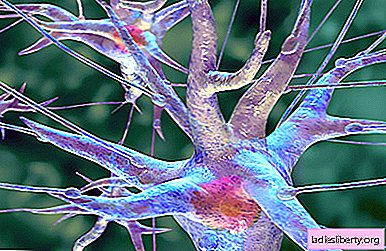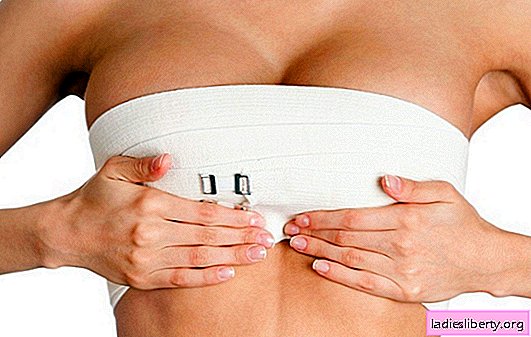
Neuritis - An inflammatory nerve disease that is characterized not only by pain, but also by loss of sensation, paralysis. A special form of neuritis is polyneuritis, in which several nerves are involved in the inflammatory process. Polyneuritis is characterized by the chronic nature of the course of the disease.
Neuritis - causes
Neuritis can cause external and internal causes.
External causes include:
- various injuries;
- pinched nerves;
- intoxication of the body (this may be poisoning with food, drugs or abuse of alcoholic beverages).
The internal causes of neuritis include:
- diabetes;
- pregnancy;
- violation of metabolic processes in the body;
- diseases of the endocrine system;
- gout;
- rheumatism;
- obesity;
- various infectious diseases;
- hereditary factors.
Neuritis - Symptoms
The main symptom of neuritis is pain in the innervation of the affected nerve. In this case, the following symptoms are observed in the area of inflammation:
- motor disorders (up to a state of paralysis);
- decrease in sensitivity;
- atrophy of a part of the muscles;
- slight tingling and numbness of the affected area;
- general weakness.
Neuritis - diagnosis
The primary diagnosis of neuritis is based on the symptoms of the disease. In the future, electroneurography is performed, which allows you to determine the degree of nerve damage, and also allows you to formulate a forecast for the further course of the disease.
Modern medicine offers a number of new diagnostic methods, the principle of which is based on the electrical conductivity of the nerve columns of a person.
Neuritis - treatment and prevention
In the treatment of bacterial neuritis, antibiotics and sulfonamides are actively used; with a disease caused by a virus, gamma globulin and interferon are used; with the ischemic nature of the disease - aminophylline, papaverine, compliance and other vasodilator drugs. In the acute period of the course of traumatic neuritis, immobilization of the injured limb is recommended, painkillers and anti-inflammatory drugs, B vitamins and dehydration drugs (brufen, indomethacin, diacarb) are used. 2 weeks after the start of the course of therapy, nticholinesterase drugs or biogenic stimulants (aloe, lidase) are used.
With the complex treatment of neuritis, physiotherapy is used. To accelerate nerve generation, as well as for pain relief, pulse current, UHF, ultrasound treatment with hydrocortisone, and electrophoresis using various drugs are used. In addition, in the case of a slowed-down period of patient rehabilitation, paraffin and mud baths, inductophoresis, chamber hydrogalvanic baths and other procedures are used. Particular attention is paid to physical therapy in combination with massage.
In the period of remission of neuritis use radon and sulfide baths, UHF, mud therapy. With insufficient effect of conservative methods of therapy, alcoholization of damaged nerve trunks, as well as electroanalgesia, are used.
In the treatment of neuritis of the glossopharyngeal and trigeminal nerves, anticonvulsants (diphenin, finlepsin, tegretol), antidepressants are used.
The prognosis for the treatment of neuritis depends on the age of the patient. In young people, therapy has a much greater effect than in older people.
For the prevention of neuritis, vitamin complexes with a content of B vitamins are recommended. It is also necessary to prevent intoxication of the body: do not drink alcohol, be careful about taking medications.











